Everyone processes and retains information differently. As a parent, you are uniquely aware of how your son learns best – whether he needs silence or whether he needs the radio playing in the background. When assessments and exams are looming, it can be helpful to remind your son of study methods that are tried and true and that may suit his personality.
Here are our top five established and well-founded study techniques for boys:
- Goal setting and planning
To avoid stress in the later months of the year, it is important to set goals and plan properly early on. Encourage your son to use his school diary or calendar to mark when assessments are expected, plan ahead, prioritise and create realistic checklists. - Regular breaks and exercise
Breaks, exercise and a good night’s sleep are all important for maintaining a clear mind and managing stress. Lethargy and an inability to focus can set in if your son is sitting for too long. Some boys can then start overthinking problems, so encourage some time outside to clear the mind and avoid stress. - Times, tools and methods
Ask your son to pay attention to when and where he is most focused and productive. This will encourage him to be aware of how he learns and to take responsibility for his study. Some may respond well to a designated study space to ‘check in to’ but others may need variation. Whatever the method, a consistent, regular time is invaluable to prevent ‘night before’ cramming sessions. - Understanding, rather than memorising
Summarising may take many different forms but the act of putting something into their own words encourages a deeper understanding and long term retention. In order to encourage a better understanding of a topic, boys can use the ‘SQ3R’ method (survey, question, read, recite and review) or draw mind maps. Other boys may find dinner table discussion or quizzes helpful. Whatever the method, encourage him to focus on understanding rather that memorising. - Personalising study methods
It may help your son to know that just because his class mates or siblings find one method of study helpful doesn’t mean that he should assume that it will also work for him.The four most common learning styles are:
- Kinaesthetic: Kinaesthetic learners prefer to learn by experience, so they may find assembling charts, creating flashcards or mnemonics helpful. Note taking or typing can also help the kinaesthetic learner keep their fingers busy whilst studying to help them focus.
- Visual: Visual learners often prefer studying alone and transcribing on paper rather than using the computer. They can have trouble working while having or hearing a conversation so a quiet study space is ideal. If they are struggling, or procrastinating work on a subject because it requires a lot of reading, you can encourage them to create a graph or chart alongside the reading material to keep them focused.
- Auditory: Auditory learners work best when they can hear the material and can verbally discuss it. If your son is an auditory learner, he may like to be able to read his notes aloud, join a study group with his classmates or try and teach what he’s learning to a sibling.
- Haptic: Haptic learners can struggle to focus and seem hyperactive. If this sounds like your son, he may find it helpful to walk around while reading or to act out the materials. Encourage him to make studying physical and colourful – he could use a standing desk or sit on a yoga ball. He could create colourful posters for his study area as drawing or acting can assist with assignments. If your son can accurately summarise what he has just read, even though he had been listening to music or pacing around the room while reading, he may be a haptic learner.
Whatever method your son uses when studying, you can help keep him on track and focused. Encourage him to plan and suggest regular, short periods of study, rather than a single, long cramming session. Ask him to explain and summarise what he has learnt in his own way, rather than memorising a textbook definition.
Download your copy of Honours at The Scots College, to see how our unique and engaging Honours programs will help you son discover his academic potential.






